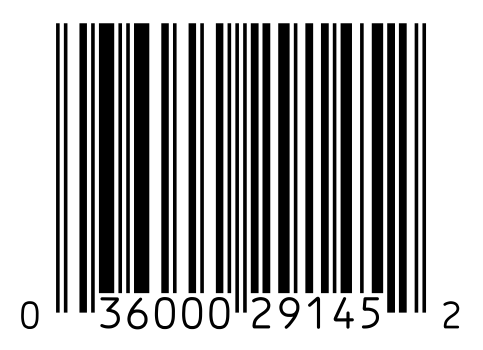Remember These Titans of Science Who Died in 2012
From the inventor of the barcode to the discoverer of how cancer spreads, we take a look at the brilliant minds who shaped our culture and modern way of life
![]()

Invented by N. Joseph Woodand, the barcode revolutionized global commerce. Woodand died December 9. Image via Wikimedia Commons
Today as the year ends, several scientists, innovators and scientific advocates pass into memory. From the inventor of the barcode to the first human to perform an organ transplant, their lives and their work helped to shape our culture, modern way of life and place in human history.
Space Sciences: 2012 saw the passing of a few key figureheads of space exploration, as mentioned in a previous post. In addition, Bernard Lovell, a physicist and astronomer who founded Britain’s Jodrell Bank Observatory of radio telescopes, died August 6. The telescopes he helped build were the first to identify quasars, and one was the only telescope in the western hemisphere capable of tracking Sputnik–the first artificial satellite–after it was launched by the Soviets in 1957. In 1960, his telescope became the first to transmit a command to a deep space probe–Pioneer V–22 million miles away, directing it to separate from its carrier rocket.
Earth and Environmental Sciences: F. Sherwood Rowland, winner of the Nobel prize for chemistry in 1995, died March 10. Sherwood and colleagues warned in a landmark 1974 Nature paper that chlorofluorocarbons–CFCs, a chemical found in refrigerants and aerosol spray cans–were destroying the ozone layer at alarming rates. The ozone layer protects life from the sun’s harmful ultraviolet rays which damage tissues and cause skin cancer in humans; without this layer, life couldn’t exist. His discovery and his efforts to draw public attention to the ozone layer’s destruction helped pave the way for the Montreal Protocol, which in 1987 was adopted by the world community to phase out CFC production.
Barry Commoner, labeled as the “Paul Revere of ecology’ by Time magazine in 1970, passed away September 30. Commoner, a biologist, helped to make saving the planet a political cause by showing that the post-World-War-II technological boom had environmental consequences–he documented the global effects of radioactive fallout and spoke against pollutants released by the petrochemical and nuclear power industries–and he argued that the public had a right to know about the use and extent of industrial pollutants.
Medicine: On July 24, Robert Ledley, a radiologist who invented the CT scanner–technology that produces cross sectional images of the human body–died from Alzheimer’s disease. The technology revolutionized how physicians treat cancer–before this invention, health professionals used exploratory surgery to search for cancerous masses. Joseph E. Murray, the doctor who performed the first successful human organ transplant in 1954 (PDF) when he removed a kidney from one twin and placed it in the other ailing twin, died on June 28. He won the Nobel prize in medicine in 1990. Also dead this year is William House, who invented the cochlear implant–a device that helps restore hearing to the profoundly deaf. He died on December 7.
On Feburary 20, Renalto Pulbecco died; Pulbecco shared the Nobel prize for medicine in 1975 for his work on how certain viruses altered DNA and caused cancer cells to spread at accelerated rates. This finding provided the first concrete evidence that cancer growth is tied to genetic mutations. Another Nobel prize winner to pass away this year was Andrew Huxley, who helped to unravel the mechanism behind how nerve impulses control muscle action. Huxley died on May 30. Joining the list of deceased Nobel laureates is William S. Knowles, who died June 13. Knowles helped devise a mechanism that allowed researchers to separate medicinal compounds from their toxic mirror images (same composition, different chemical orientations); his work won him the Nobel prize in chemistry in 2001.
Technology: Stanford R. Ovchinsky, who died on October 17, invented the rechargeable nickel-metal hydride battery. He also played a role in the development of solar panels, rewritable CDs, and flat panel displays. December 9 saw the death of N. Joseph Woodand, the co-inventor of the barcode now ubiquitous in global commerce. Woodand drew inspiration for the think and thin lines of his product identifiers from Morse code, which he learned as a Boy Scout.
Paleoanthropology: For upwards of 50 years, Phillip Tobias led excavations in South Africa that helped identify extinct species of human ancestors. Tobias, who discovered more than a third of the world’s early hominid fossils, died on June 7. One of his benchmark finds was an extraordinarily complete 2.2-million-year-old fossil skeleton, nicknamed “Little Foot,” uncovered in 1995.
However you celebrate the New Year, may these late greats be in your thoughts!
/https://tf-cmsv2-smithsonianmag-media.s3.amazonaws.com/accounts/headshot/mohi-kumar-240.jpg)
/https://tf-cmsv2-smithsonianmag-media.s3.amazonaws.com/accounts/headshot/mohi-kumar-240.jpg)